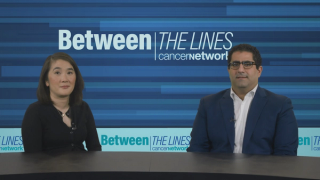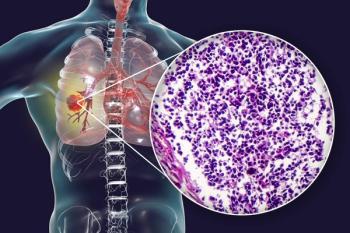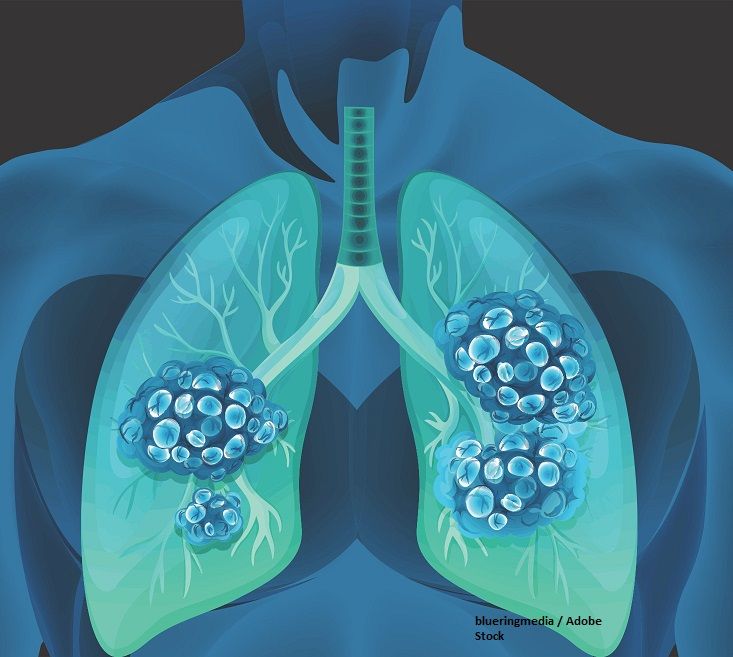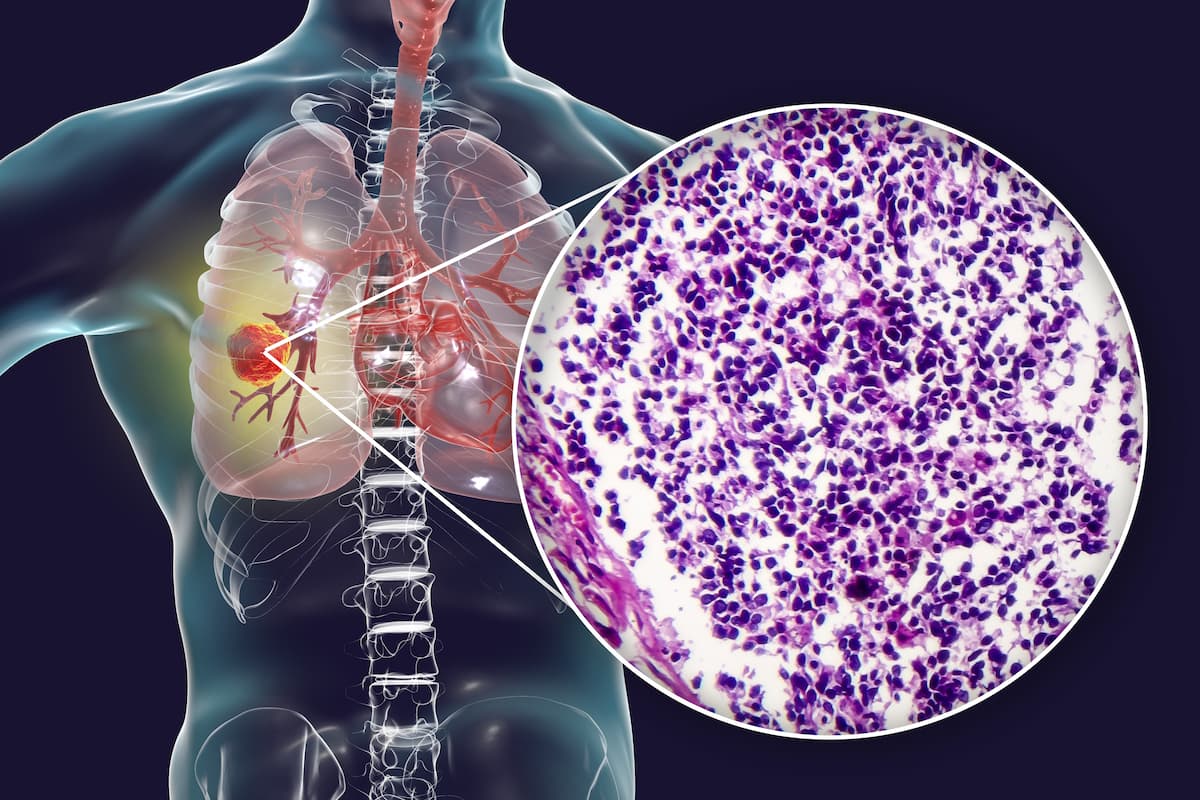
Non-Small Cell Lung Cancer (NSCLC)
Latest News
Latest Videos

CME Content
More News

The FDA has set a Prescription Drug User Fee Act date in the fourth quarter of 2023 for encorafenib plus binimetinib as a treatment for BRAF V600E–mutant metastatic non–small cell lung cancer.

Patients with non–small cell lung cancer who had mild/moderate immune-related adverse effects appear to have improved overall survival compared with those without following atezolizumab-based therapy.

Patritumab deruxtecan continues to yield positive efficacy in 2 early phase trials assessing the agent in patients with metastatic non–small cell lung cancer and breast cancer.

New findings from the phase 3 ADAURA trial “provide powerful evidence” of osimertinib’s potential to extend the lives of patients with early-stage, EGFR-mutant non–small cell lung cancer, according to an expert from Yale Cancer Center.

Final analyses for pathologic response appear consistent with previous reports from the phase 3 AEGEAN trial evaluating neoadjuvant durvalumab and chemotherapy plus adjuvant durvalumab monotherapy in resectable non–small cell lung cancer.

The VENTANA PD-L1 Assay becomes the only FDA-approved companion diagnostic with non–small cell lung cancer indications for 4 immunotherapy agents.

Investigators report that pembrolizumab plus enzalutamide and androgen deprivation therapy does not significantly improve outcomes in castration-resistant prostate cancer; neither did pembrolizumab/chemotherapy in non–small cell lung cancer.

Pembrolizumab plus chemotherapy followed by resection and adjuvant pembrolizumab also appears to improve pathological responses in patients with non–small cell lung cancer.

The FDA gives a positive recommendation following a Type C Meeting for the development of the OSE2101 cancer vaccine in advanced or metastatic non–small cell lung cancer.

Findings from the phase 2 TELMA trial suggest that atezolizumab plus bevacizumab yields robust, long-lasting outcomes for patients with metastatic nonsquamous tumor mutational burden–high non–small cell lung cancer.

Adjuvant osimertinib continues to prolong survival and improve outcomes among patients with resected, EGFR-mutant non–small cell lung cancer.

Qianyue Deng, MD, and colleagues examine the efficacy of thoracic radiotherapy for the treatment of unresectable non-small cell lung cancer.

The FDA approved adjuvant pembrolizumab for the treatment of patients with resected non–small cell lung cancer, based on data from the phase 3 KEYNOTE-091/EORTC-1416-LCG/ETOP-8-15-PEARLS trial.

Findings from the phase 3 Neotorch trial indicate that toripalimab plus chemotherapy has met the primary end point of event-free survival among patients with operable non–small cell lung cancer.

The National Medical Products Administration of China gives approval to mobocertinib for patients with non–small cell lung cancer harboring EGFR exon 20 insertion mutations.

A contingent of patients with a type of lung cancer and breast cancer continues to experience responses to treatment with zotatifin, according to updated study findings.

The overall survival improvements were observed when tumor-treating fields were combined with immune checkpoint inhibitors with a positive trend towards improvement when combined with docetaxel in those with stage IV non–small cell lung cancer.

The FDA’s decision means that oncologists can use FoundationOne Liquid CDx to identify patients with ROS1-positive non–small cell lung cancer or NTRK fusion–positive solid tumors who are eligible for treatment with entrectinib.

The decision to approve durvalumab plus tremelimumab in Japan for patients with advanced non–small cell lung cancer and unresectable biliary tract cancer and liver cancer was based on data from several phase 3 studies.

The phase 3 NEPTUNE study indicated that durvalumab plus tremelimumab did not reach an amended primary end point of improved overall survival among patients with metastatic non–small cell lung cancer with a blood tumor mutational burden of at least 20 mut/Mb, though the combination did yield a numerical reduction in risk of death.

Data from the phase 3 PEARL trial indicated that durvalumab yielded a clinically significant improvement in overall survival but did not meet statistical significance among patients with stage IV non–small cell lung cancer with high PD-L1 expression.

The FDA has approved the FoundationOne Liquid CDx as a companion diagnostic for identifying patients with non-small cell lung cancer harboring EGFR mutations who may benefit from treatment with specific tyrosine kinase inhibitors.

Results from the phase 2 ARC-7 trial found that zimberelimab, etrumadenant, and domvanalimab enhanced efficacy outcomes in patients with advanced non–small cell lung cancer.

The FDA has approved the Agilent Resolution ctDx FIRST assay for identifying patients with KRAS G12C–mutated non–small cell lung cancer who may benefit from adagrasib.

The FDA has approved an additional indication for pemetrexed injection plus pembrolizumab and chemotherapy in the treatment of metastatic non–small cell lung cancer without EGFR or ALK tumor aberrations.










































